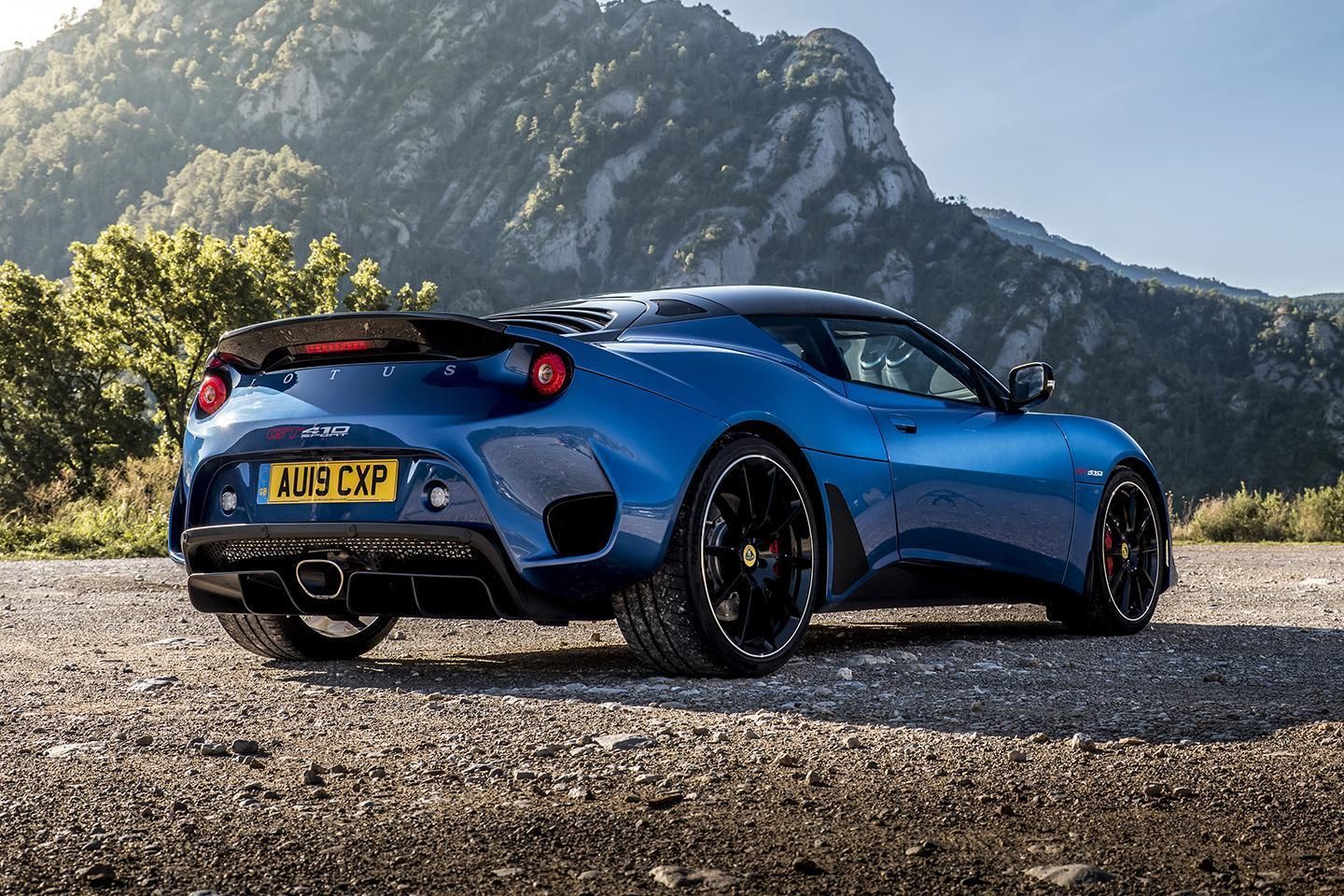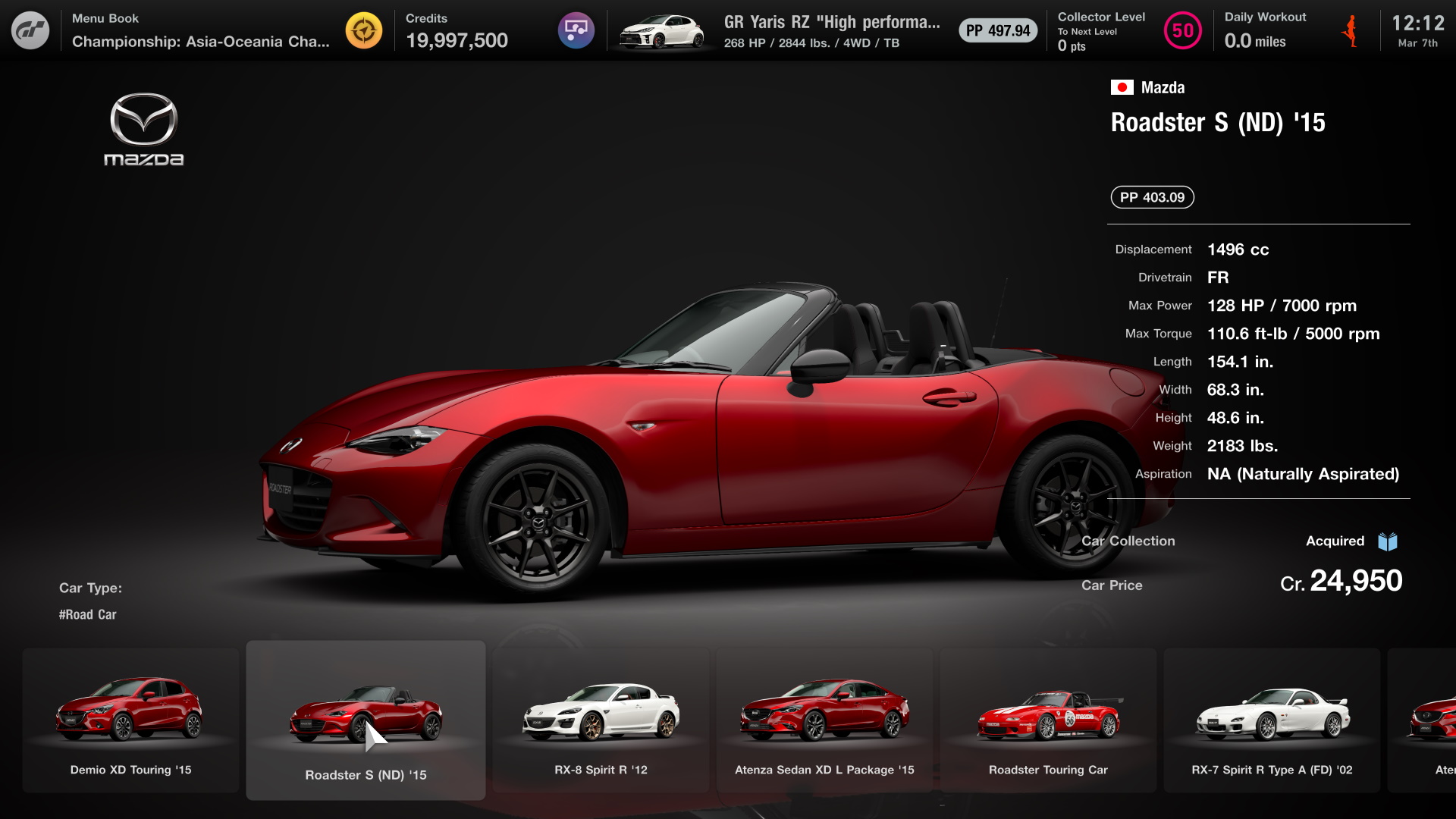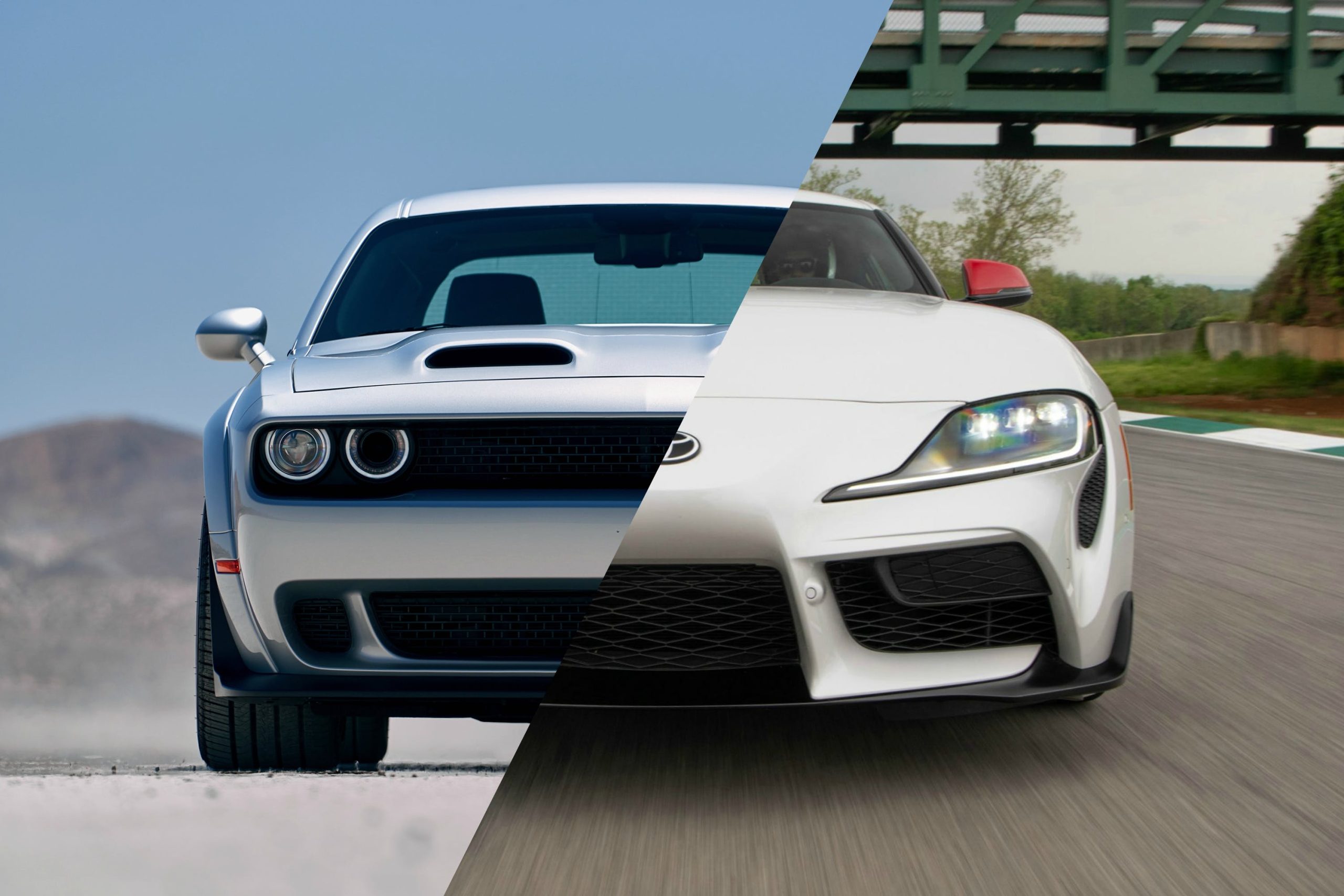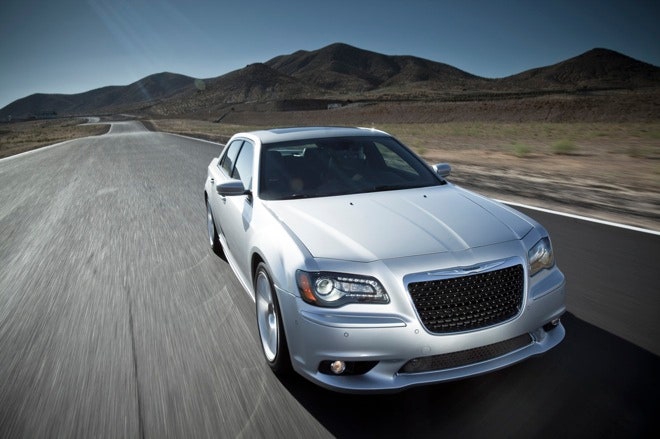Who Buys Sports Cars
Sports cars are typically purchased by enthusiasts looking for high performance and luxury buyers seeking prestige. Young professionals and middle-aged individuals often buy sports cars as a symbol of success and passion for driving.
Embodying the thrill of speed and the allure of sleek design, sports cars captivate a diverse audience. From track aficionados to those wishing to make a statement on the road, the appeal crosses various age groups and lifestyles. Collectors and hobbyists also invest in these vehicles, fueled by a desire to own a piece of automotive art.
The burgeoning market for sports cars reflects a blend of practicality in daily commuting and the joy of weekend escapades. As the definition of a sports car expands, so does the demographic of its purchasers, who all share a common thread: the love for driving dynamics and eye-catching aesthetics. Manufacturers cater to this audience with a range of options, from attainable to ultra-exclusive, ensuring there’s a sports car for every type of dreamer and driver.

Credit: www.pistonheads.com
The Lure Of Sports Cars
The Lure of Sports Cars ignites the imagination of people worldwide. Sleek designs, cutting-edge technology, and unsurpassed speed define these automotive marvels. They convey status and excitement, promising an adrenaline rush with every turn of the ignition. Let’s explore who gravitates towards these high-octane machines.
Performance Enthusiasts
Sports cars attract those who crave the thrill of speed and agility. Performance enthusiasts appreciate the fine-tuned mechanics that deliver top acceleration and handling.
- Breathtaking speed capabilities
- Precision engineering
- Vivid handling and control
These lovers of velocity often participate in track days and car club events, sharing their passion with like-minded individuals.
Luxury Seekers
Luxury seekers buy sports cars for their opulence and status symbol. These buyers value the sophistication and creature comforts that come with a luxury sports car.
- High-quality interior materials
- State-of-the-art tech features
- Exclusive brand prestige
They enjoy the envious stares as they cruise the boulevards, ensconced in leather and cutting-edge technology.

Credit: www.gran-turismo.com
Demographics Of Sports Car Owners
The allure of sports cars captivates a diverse audience, yet particular demographics dominate ownership. Sleek designs, powerful engines, and cultural symbols, sports cars are not just vehicles—they’re statements. Understand who invests in these remarkable machines provides insights into market trends and consumer behavior.
Age Distribution
The age of sports car owners spans various life stages, but key groups stand out. Young adults and those in mid-life often pursue sports cars as symbols of success and excitement. Let’s break down the groups:
- Young Professionals (Ages 20-35): With newfound purchasing power, they seek thrilling experiences.
- Mid-life Enthusiasts (Ages 36-55): Stable careers enable investments in high-performance vehicles.
- Retirees (Ages 56+): For some, sports cars fulfill longstanding desires for luxury and leisure.
Geographic Trends
Sports car ownership also mirrors geographic patterns. In areas with warmer climates and scenic drives, sports cars are more prevalent. Wealth hubs around the world show higher concentrations of sports car enthusiasts. Here’s an overview:
| Region | Ownership Rate |
|---|---|
| Warm Coastal Areas | Higher |
| Urban Metropolises | Varied |
| Suburban Neighborhoods | Common |
| Rural Communities | Lower |
Density, terrain, and lifestyle all play roles in sports car distribution. Affluent areas are hotspots, while tough terrains and inclement weather can lessen appeal.
Psychographics: Understanding The Buyer’s Mindset
When exploring who buys sports cars, it’s essential to dive into the psychology behind the purchase. It’s not just about the car; it’s about what the car represents. The buyer’s mindset encompasses a range of motivations and desires that drive the decision to buy these high-octane machines. Let’s shift gears and look into the key psychographic factors that define sports car enthusiasts.
The Need For Speed And Status
Sports car buyers often share a common goal: the pursuit of speed and status. These individuals view their car as more than a tool for transportation; it’s a symbol of their success and standing in society. The sleek design, roaring engines, and lightning-fast speeds serve as powerful status indicators.
- Association with luxury and exclusivity
- Display of achievement and success
- Enjoyment from driving a car that turns heads
Thrill Seekers And Risk Takers
Sports car enthusiasts often partake in the thrill of driving. They savor each moment behind the wheel, where they can test limits and experience adrenaline. Risk-taking is not just accepted; it’s celebrated among this crowd. These buyers crave excitement and look to sports cars to fulfill this desire.
| Thrill Seeking Characteristics | How Sports Cars Fulfill Them |
|---|---|
| Desire for high-speed adventures | Advanced performance capabilities |
| Love for control and mastery | Responsive handling and dynamics |
| Seeking new experiences | Unique driving sensations |

Credit: www.quora.com
Economic Factors Influencing Purchases
Understanding who buys sports cars requires peering into their wallets. It’s all about the economics. Let’s dive into the financial forces at play.
Income Levels And Spending Power
Personal financial stability dictates luxury car ownership. With higher disposable income, consumers often indulge in high-end vehicles. Sports car manufacturers target these individuals. They understand the relationship between income levels and vehicle preferences.
- High earners: Tend to buy new, premium sports models.
- Middle-income buyers: Look for pre-owned or entry-level sports cars.
Spending power isn’t just about earnings. It includes credit access and investment returns. Both can boost buying capacity.
The Impact Of Economic Cycles
The economy’s ebb and flow affect sports car sales. In boom times, car purchases soar. During downturns, they dip. The automotive industry mirrors these trends.
| Economic Phase | Sports Car Market Response |
|---|---|
| Prosperity | Rise in luxury vehicle purchases. |
| Recession | Preference for practical, fuel-efficient models. |
Interest rates also play a pivotal role. Lower rates can make sports car loans more attractive, boosting sales.
Shifts In The Market
Shifts in the Market reflect the evolving preferences and trends influencing who buys sports cars today. Buyers exhibit changing values, from the desire for high-performance machines to an emphasis on environmental impact and technology influence. These market dynamics shape sports car sales and brand strategies.
Rising Interest In Eco-friendly Sports Cars
The demand for power and speed now shares the spotlight with eco-consciousness. Manufacturers respond with innovative designs, blending electric powertrains with the classic sports car experience.
- Diverse demographic drawn to lower emissions and sustainability
- Models like Tesla Roadster and Porsche Taycan lead the charge
- Hybrid options offer a compromise between tradition and modernity
The Influence Of Social Media On Purchasing Decisions
Social media platforms like Instagram and YouTube become showrooms, where influencers and brand ambassadors showcase the latest in speed and style. This exposure sways buyers’ decisions and solidifies sports cars’ social status.
| Platform | Impact Level |
|---|---|
| High – Visuals Drive Interest | |
| YouTube | Medium – Reviews & Test Drives |
The Role Of Brand Loyalty
The Role of Brand Loyalty plays a pivotal role in the sports car market. Those who buy sports cars often don’t just purchase a set of wheels but buy into a legacy. Brand loyalty influences choices, directing consumers towards their dream machines.
Legacy Of Iconic Brands
Legacy fuels passion for sports cars. Brands like Ferrari and Porsche command loyalty through their history. Owners don’t just drive; they join a legacy that speaks of triumph and excellence. Iconic brands foster deep emotional connections. These connections lead to repeat purchases and recommendations.
The Effect Of Brand Partnerships And Sponsorships
Brand partnerships play a crucial role in shaping perceptions. When a sports car brand sponsors a winning race team, it cements its status. Followers of the sport often become fans of the brand. This loyalty translates into customers preferring to buy cars from such esteemed brands. Sponsors also offer exclusive deals, making it alluring for enthusiasts to stick with the brand.
- Exclusive access: Invitations to special events.
- Co-branding items: Collectibles that enhance the ownership experience.
- Community: Access to clubs and networks of like-minded individuals.
Frequently Asked Questions Of Who Buys Sports Cars
Why Do Middle Age Men Buy Sports Cars?
Middle-aged men often buy sports cars as a symbol of success or to fulfill lifelong dreams. It can also represent a passion for performance vehicles or a desire to recapture youth.
Why Do People Buy Performance Cars?
People buy performance cars for their powerful engines, high-speed capabilities, superior handling, and sporty aesthetic appeal. They offer an exhilarating driving experience and status symbol recognition.
Who Gives The Most Money For A Used Car?
CarMax often offers competitive rates for used cars. Local dealerships and private buyers may also provide high offers, especially for in-demand vehicle models. Always compare multiple quotes to ensure the best deal.
Who Buys A Sports Car?
Sports cars are typically purchased by enthusiasts seeking performance, style, and driving pleasure. They attract individuals with disposable income desiring a luxurious or high-adrenaline driving experience. Young adults and middle-aged buyers often dominate this market segment.
Conclusion
Exploring the diverse demographic of sports car buyers reveals a fascinating mix of enthusiasts and connoisseurs. They span different age groups, professions, and passions, united by a love for speed, style, and performance. Whether it’s the thrill of the drive or the status the vehicle brings, sports cars have a unique appeal that transcends the typical buying trends.
As automakers continue to innovate, the profile of buyers will likely evolve, ensuring the sports car legacy speeds on.





